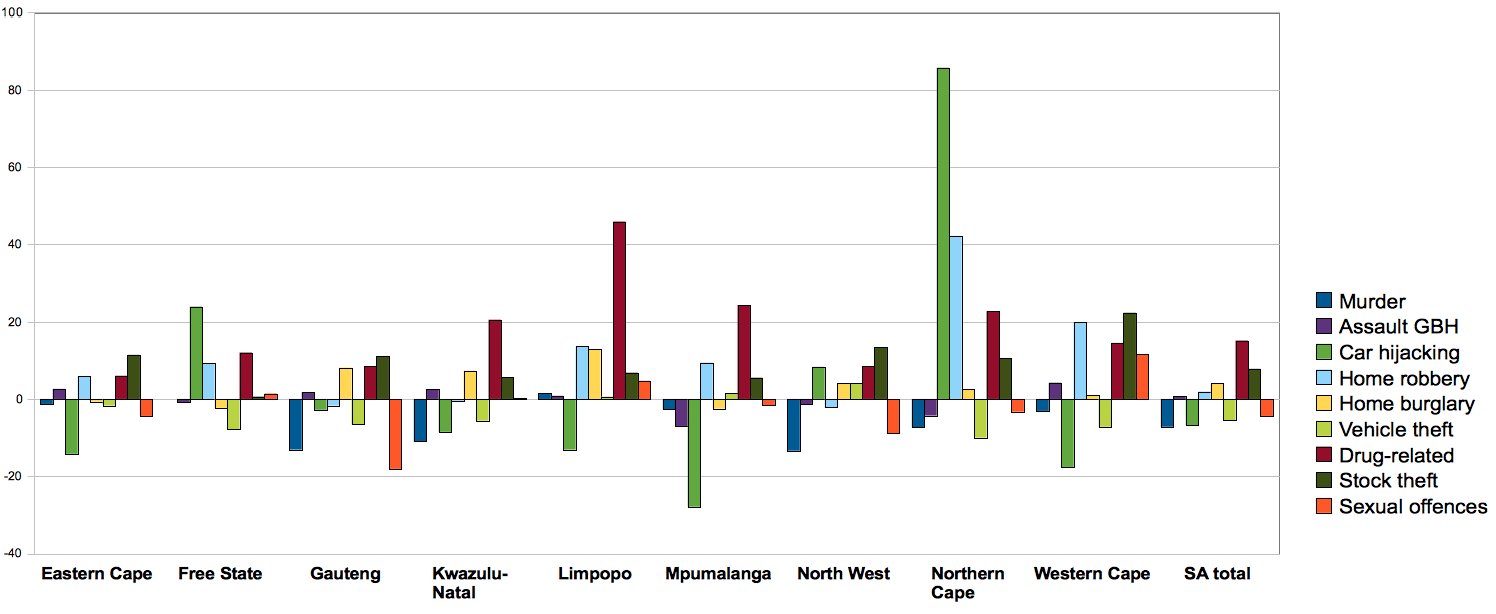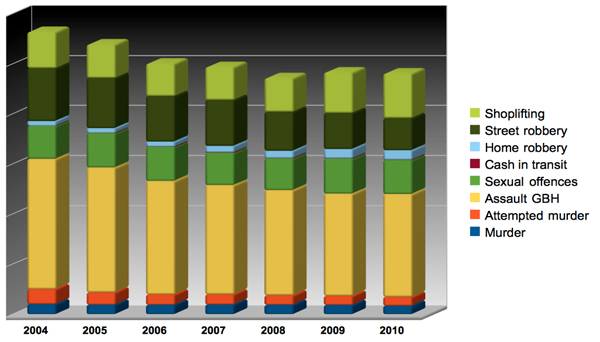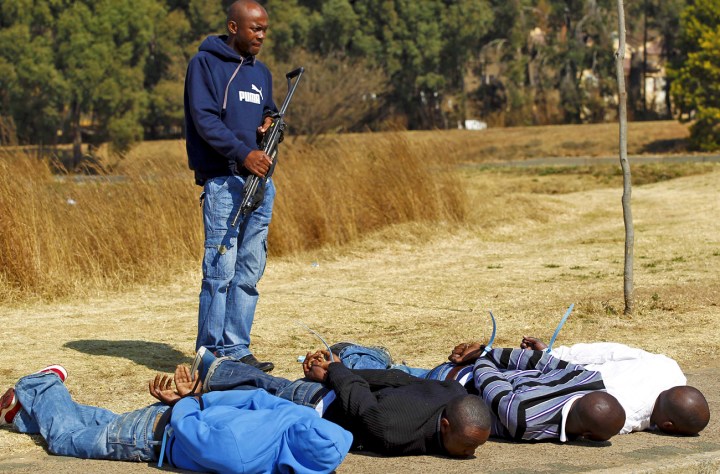Beware the easy answers and simple sound-bites. Yes, the number of murders are down nearly everywhere. Indeed, drug-related crime and stock theft is up nearly everywhere. But beyond those very broad strokes, the state of crime in South Africa is purely subjective, and wholly confusing. By PHILLIP DE WET.
There were 7.2% fewer murders in South Africa during the 2010 year of reporting (to the end of March) than in 2009. What, you thought it was actually down 8.6%? Well yes, that is what you may have heard police minister Nathi Mthethwa say. And no, he wasn’t lying. Mthethwa prefers to measure the change in the murder rate, which is measured per capita, to just comparing the number of dead bodies every year. As the population grows, so the crime rate decreases.
When it comes to murder, Mthethwa happens to be on firm ground. The police counted 16,834 murdered bodies during the course of the last year, which is down substantially from the 18,148 recorded the year before. But look at a category such as assault with the intent to inflict grievous bodily harm, or just GBH as it is commonly known, and the difference becomes important. Mthethwa declared the rate of GBH to be down by 0.5%. But 0.7% more people actually suffered and reported such assaults. Your statistical odds of being a victim decreased, but the 1,516 more individuals who were so assaulted probably don’t care much for the odds.

Graph no 1: The percentage change in a cross-section of serious crimes by province, comparing the 2010 reporting year to the 2009 one. In some instances the change is misleading, such as in the Northern Cape, where so few cars are ever hijacked that in increase of just six incidents made for a dramatic spike. But the general confusion and lack of clear trends is accurate.
Trying to draw general, national conclusions from the crime data the police released on Thursday is very close to a futile exercise. Crime that can be related to drugs rose in every province and most areas within those provinces, stock theft was likewise up throughout the country and the number of cars stolen declined pretty much everywhere.
But the police would like to believe that the increase in drug busts is due to better policing and a crackdown on known dealers rather than due to an increase in users and pushers – though it admits that nobody knows for sure. Stock theft is sometimes a crime of hunger, and so related to a drop in employment, sometimes conducted across borders, and so related to the efficiency of border patrols, and sometimes organised by syndicates that come and go. Car theft is almost certainly more influenced by new anti-theft technologies and services than anything done by the police or the appetites of thieves, who may have shifted to a mixture of home robbery and burglary instead.

Graph 2: The number of instances reported across a selection of serious crimes, by year. AKA the more things change, the more they stay the same.
More useful than such broad-stroke analyses are the local reports from individual police stations, which are available on the SAPS website. Comparing such data to that of previous years provides a clear picture of just how different the experience of crime can be in different communities. At the Rosebank police station in Johannesburg, the last year saw a decrease of nearly 60% in contact crimes, the most serious and feared kind. The Lephalale station in Limpopo reported an increase of more than 20% in the same category.
If you believe the data, of course. Station commanders have in the past shown themselves to not be above cooking the books.
Graph 3: The actual number of instances of robbery with aggravating circumstances reported at four police stations in Johannesburg during the year. From rich areas like Sandton to (the neighbouring) poor area like Alexandara, instances of such attacks were down sharply. But in Lenasia, though down year-on-year, levels were still considerably higher than the average of previous years.
Are the police making South Africans safer? Mthethwa prefers to phrase it as turning the tide against crime, and pushing back “the frontiers of evil”. Police chief Bheki Cele speaks of improving morale within his organisation, and cites a sharp decrease in resignations as the best proof.
The number of dead bodies says they’re right. The number of badly assaulted people says they’re wrong. DM
Photo: A policeman stands guard after arresting robbery suspects in Mondeor, South of Johannesburg, August 19, 2010. South Africa saw an 8.6 percent dip in its murder rate over the past year but it retained its position as one of the world’s most dangerous countries outside a war zone, police data released on September 9, 2010 said. Picture taken August 19, 2010. REUTERS/Siphiwe Sibeko.





















 Become an Insider
Become an Insider